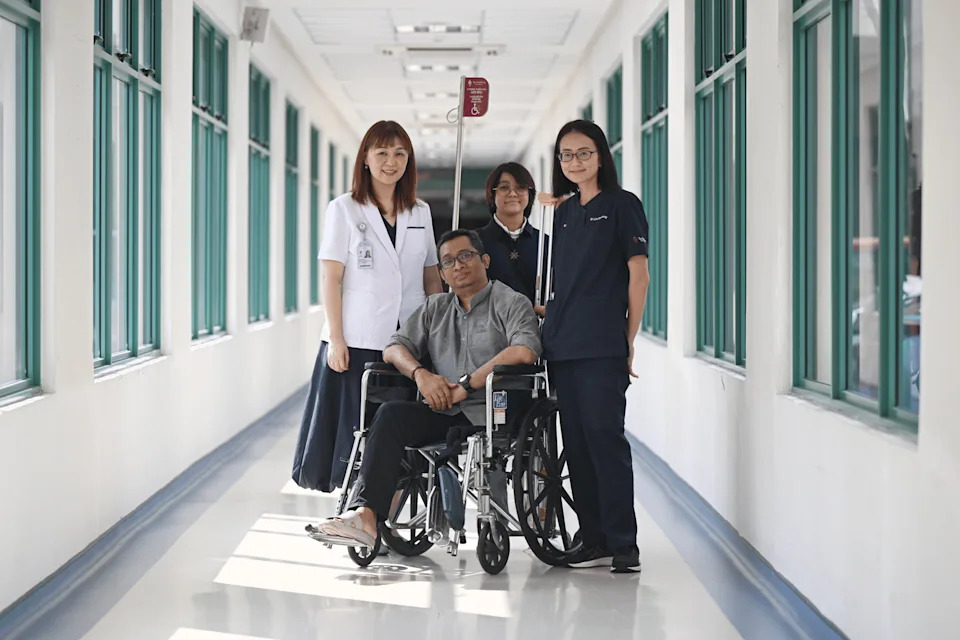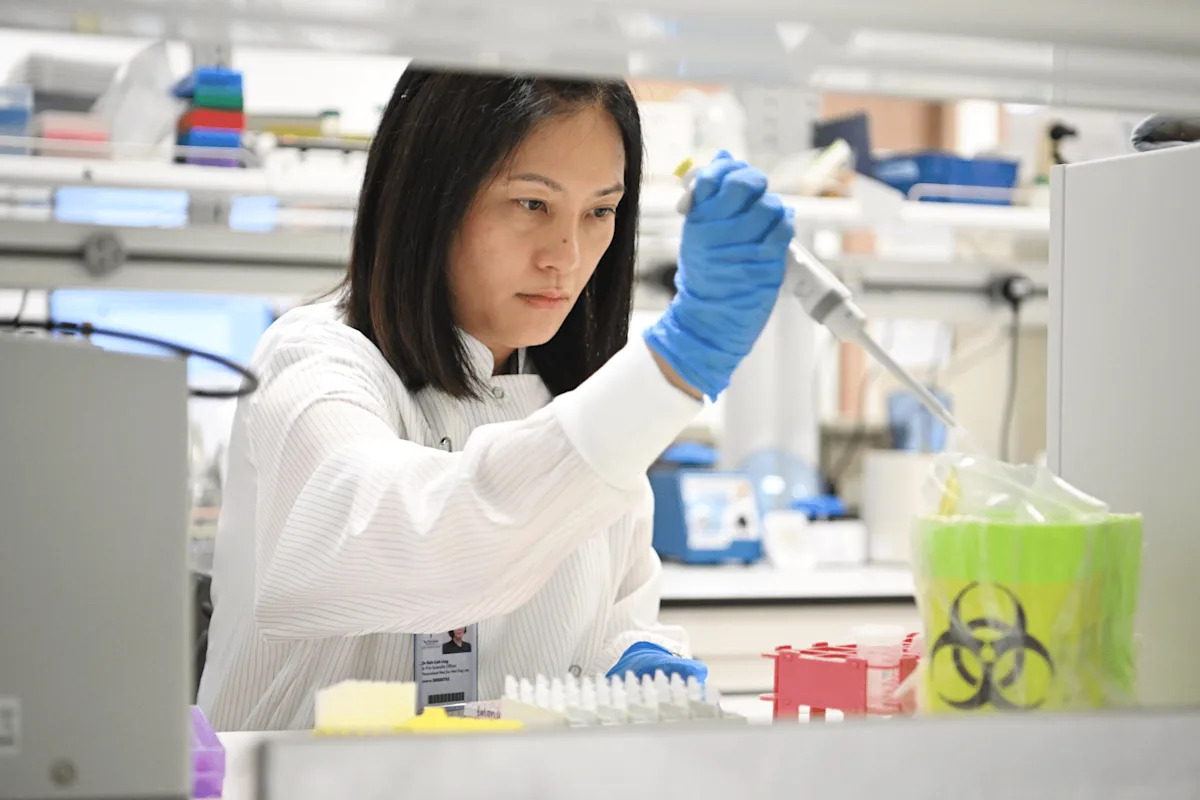SINGAPORE – Not all medicines work the same way on every patient, and part of the answer lies in the individual’s genetic make up.
Today, personalised genetic testing – available for a fee at some hospitals – can inform doctors of the appropriate treatments to give a patient.
“Combining the science of drugs with genomics is a way to develop effective, safe medications that can be prescribed based on a person’s DNA,” said Dr Goh Liuh Ling, the laboratory director and senior principal scientific officer at the Tan Tock Seng Hospital (TTSH) Centre for Precision and Genomic Medicine.
Initiated as a small service for personalised medicine by a group of doctors, scientists and pharmacists with the support of TTSH in 2016, it now offers mainly diagnostic screening services for genetically caused cancers and other kinds of genetic disorders, including rare diseases.
The centre focuses on diagnosing and managing adult-onset genetic conditions and has supported over 1,200 patients with inherited cancers, cardiac, endocrine, renal, and immune disorders.
She cited the example of Inborn Errors of Immunity (IEI), or primary immunodeficiencies, which are rare genetic conditions in which parts of the immune system are missing or do not work properly, saying that it takes an average of 12 years from the start of symptoms to diagnosis.
The centre remains one of the few services in Singapore with a dedicated adult-focused genetic counselling caseload embedded in clinical care.
“We also hired a genetic counsellor, who provides support and guidance to patients and families with or are at risk of a genetic disorder, primarily focusing on cancers. She explains the complex genetic findings, help analyse family history for risks, guide decisions and offer support,” Dr Goh said.
General worker Mohamad Shahrel Hamid, 45, has two rare conditions, and was referred to the TTSH Centre for Precision and Genomic Medicine after a benign tumour on his ankle spread to his groin area.
It was not until KK Women’s and Children’s Hospital diagnosed his daughters and worked with counterparts at the centre that Mr Sharel’s rare condition, affecting fewer than 200 people in the world, was found out.

(From left) Ms Lim Chia Wei, principal genetic counsellor at Tan Tock Seng Hospital (TTSH) Centre for Precision and Genomic Medicine; General worker Mohamad Shahrel Hamid; his daughter Nurul Naqisyah; and and Dr Lim Xin Rong, Senior Consultant, Department of Rheumatology, Allergy and Immunology at TTSH.
By 2024, the centre had extended its services regionally to include Malaysia and Indonesia, “sequencing more genes, more samples and at a shorter turnaround time”, she added.
In 2024, the laboratories at the centre tested 10,000 clinical samples. Dr Goh said it saw an annual increase of 20 per cent in lab genetic testing between 2020 and 2024.
The centre is part of a national initiative to develop personalised medicine.
Apart from diagnosing rare diseases in adults, the centre also pre-emptively tests people who are referred by doctors to analyse their genes and predict how they will respond to certain medications even before certain conditions arise or drugs prescribed.
Dr Goh said this is the future of healthcare in Singapore.
Senior manager for a research institute, Ms Zheng Weiling, 39, may have saved her father from a heart attack when she opted on the advice of her doctor to put herself through a pre-emptive genetic test.
“I found out that I could not metabolise numerous drugs and certain blood thinners such as clopidogrel. When my father was later diagnosed with acute coronary syndrome, where there is a sudden reduced of blood flow to the heart, he was prescribed clopidogrel. Knowing that what I have is genetically driven, I arranged for him to be tested,” she said.
The test confirmed he, too, was a poor metaboliser and with the information, his the treatment was adjusted, preventing drug failure and a future heart attack.
Source: The Straits Times © SPH Media Limited. Permission required for reproduction
Discover how to enjoy other premium articles here
